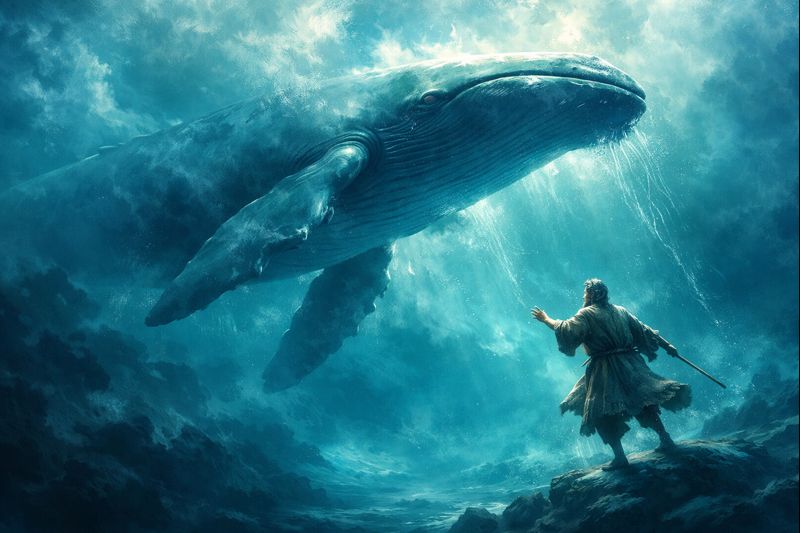Jonah’s story isn’t just about a miracle at sea
When most people think of Jonah, they picture a man swallowed by a giant fish. But Jonah’s story isn’t just about a miracle at sea—it’s about the heart of God. It’s about how we run, how God pursues, and how His mercy reaches further than we can imagine.
At its core, the book of Jonah shows us this simple truth: You can run from God, but you can never outrun His mercy.
God’s Call Is Clear
God told Jonah, “Go to the great city of Nineveh and preach against it, because its wickedness has come up before me” (Jonah 1:2).
Jonah didn’t want to go. Nineveh was Israel’s enemy, known for violence and cruelty. Jonah would rather see them judged than forgiven.
God’s call in our lives is often uncomfortable. He may ask us to forgive someone who wronged us, share the Gospel with someone we’d rather avoid, or serve in a place we never expected. His calling isn’t about our comfort—it’s about His mission.
Running From God Always Leads Downward
Instead of obeying, Jonah ran in the opposite direction. Scripture says he went down to Joppa, down into the ship, and eventually down into the sea (Jonah 1:3–5).
That’s what running from God does—it always drags us lower. Sin promises freedom but leads only to bondage.
God Sends Storms to Wake Us Up
The Lord sent a storm that rocked Jonah’s ship. The sailors panicked, but Jonah slept through it. Eventually, Jonah admitted he was the cause.
Not every storm in life is from the enemy. Some storms are God’s way of shaking us awake and drawing us back to Him.
God’s Mercy Meets Us at Rock Bottom
Jonah thought he would die at sea—but God sent a fish to swallow him (Jonah 1:17). What looked like punishment was actually protection.
From inside the fish, Jonah prayed. He repented. He remembered God’s mercy. Sometimes God has to bring us to the lowest place before we finally look up.
Repentance Restores Our Calling
After Jonah prayed, the fish spit him out on dry land. God repeated the same call: “Go to Nineveh” (Jonah 3:1–2).
Jonah obeyed this time. Here’s the lesson: repentance doesn’t erase God’s call on your life—it realigns you with it.
God’s Mercy Is Greater Than Our Boundaries
When Jonah preached in Nineveh, the entire city repented—from the king to the lowest servant. And God forgave them.
Jonah wasn’t happy about it. He wanted judgment, not mercy. But God’s heart was for the people. His mercy reached further than Jonah’s prejudice.
Who is your “Nineveh”? Who do you think is too far gone? God’s grace is for them too.
God Is Patient With Our Hearts
In the end, Jonah sat outside Nineveh, angry that God had spared the city. God grew a plant to shade him, then sent a worm to destroy it. Jonah cared more about the plant than about 120,000 people.
God gently reminded him: “Should I not have concern for the great city of Nineveh?” (Jonah 4:11).
God doesn’t just want our obedience—He wants our hearts to reflect His compassion.
Conclusion: The God Who Pursues
Jonah’s story is really our story:
- We run.
- God pursues.
- We fall.
- God lifts us up.
- We resist.
- God teaches us.
The hero of Jonah is not Jonah—it’s God. His mercy is relentless. His grace is greater than our rebellion. His love reaches further than our hate.
So let me ask: Where are you in Jonah’s story today?
- Are you running?
- Are you in a storm?
- Are you at rock bottom?
- Or are you struggling with God’s mercy for someone else?
Wherever you are, take heart! God is pursuing you. Stop running. Return to grace.

Leave a Reply